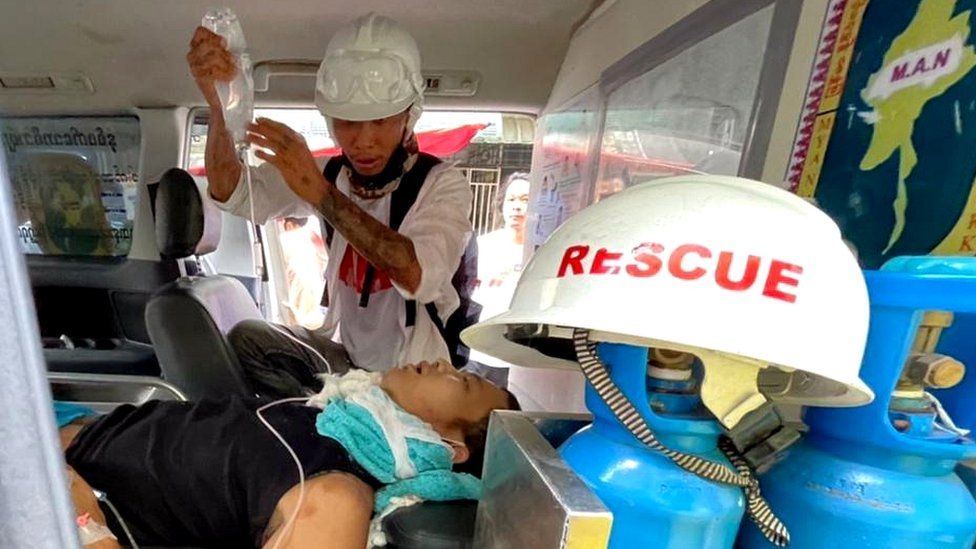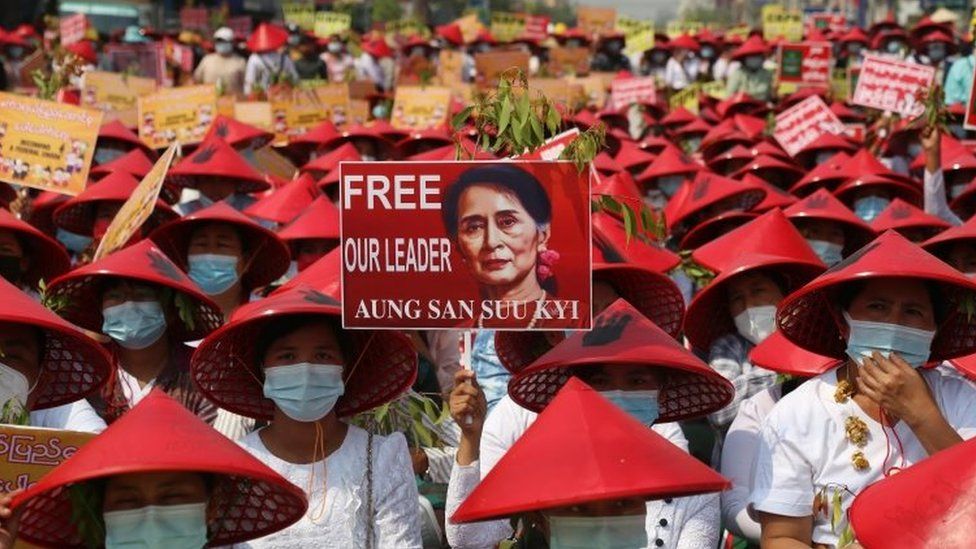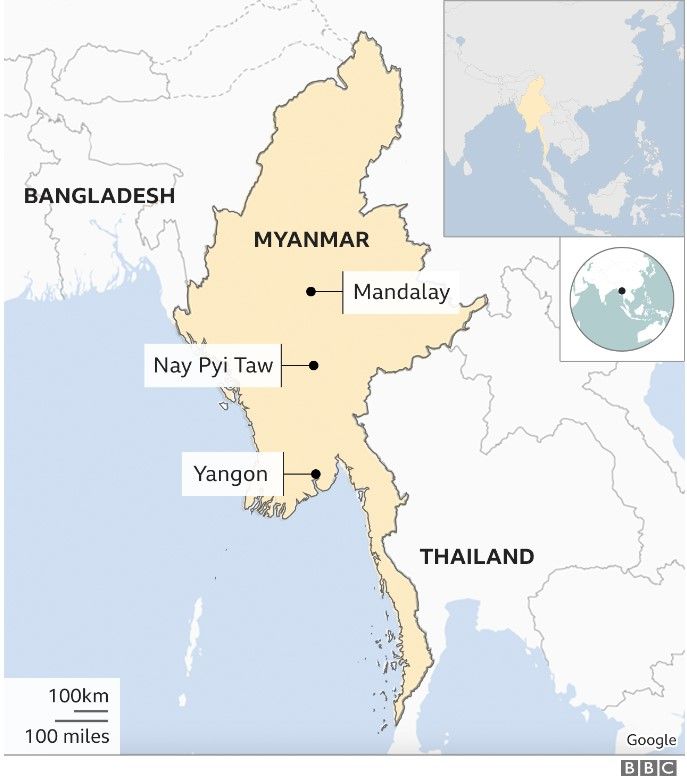Myanmar coup: Deadliest day of protests as police open fire
Police have fired on protesters in Myanmar killing at least 18, the UN human rights office says, on the deadliest day of anti-coup rallies.
Deaths were reported in several cities including Yangon, Dawei and Mandalay as police used live rounds and tear gas.
Security forces began the violent crackdown on Saturday, after weeks of largely peaceful protests against the 1 February military takeover.
Government leaders, including Aung San Suu Kyi, were overthrown and detained.
Social media footage from Sunday showed protesters running away as police charged at them, makeshift roadblocks being erected, and several people being led away covered in blood.
The police crackdown was expanded on Sunday as coup leaders sought to quash a civil disobedience campaign that has shown no sign of ending.

The people did not retreat
At the scene: BBC video journalist
As I arrived on Hledan road in Yangon an ambulance passed me. I heard one man had been shot. I ran to the location and when I arrived the volunteers had already lifted him into the ambulance.
I saw blood on the road and a homemade shield next to it. The bullet had passed through the shield.

A few minutes later, more protesters occupied the road, blocking the area with shields and carts and readying themselves to take on the police.
Many more arrived, sitting down on the road and chanting. There were so many I couldn't see the back of the crowd.
Two people were shot dead here and one was badly injured. But the people did not retreat.

What is happening on the ground?
The UN human rights office condemned the violence against protesters, saying it had "credible information" that at least 18 people had been killed on Sunday. More than 30 others have been injured.
"The people of Myanmar have the right to assemble peacefully and demand the restoration of democracy," spokesperson Ravina Shamdasani said. "Use of lethal force against non-violent demonstrators is never justifiable under international human rights norms."
Activists and medical workers said at least four people had been killed in the largest city, Yangon, as police fired bullets, stun grenades and tear gas.
The protesters remained defiant. "If they push us, we'll rise. If they attack us, we'll defend. We'll never kneel down to the military boots," Nyan Win Shein told Reuters.
Another protester, Amy Kyaw, told AFP: "Police started shooting just as we arrived. They didn't say a word of warning. Some got injured and some teachers are still hiding in neighbours' houses."
Some demonstrators were herded away in police vans.
In the south-eastern city of Dawei, security forces moved to break up a rally.
There are reports of live rounds being used. Four people were killed in the city, activists told the BBC.

Police also cracked down on a large rally in Mandalay, where police used water cannon and fired into the air. One person was killed there, the BBC has been told.
Protests have continued elsewhere, including the north-eastern town of Lashio.
The UN said deaths had also been reported in Myeik, Bago and Pokokku.
The number of arrests since the protests began has not been confirmed. The Assistance Association for Political Prisoners monitoring group has put the figure at 850, but hundreds more appear to have been detained this weekend.
Where is Aung San Suu Kyi?
Myanmar's civilian leader has not been seen in public since she was detained in the capital Nay Pyi Taw as the coup began.
Her supporters and many in the international community have demanded her release and the restoration of the November election result that saw her National League for Democracy party win a landslide.
Ms Suu Kyi is scheduled to face court proceedings on Monday on charges of possessing unregistered walkie-talkies and violating coronavirus rules. But her lawyer says he has been unable to speak to her.
Military leaders justified the seizure of power by alleging widespread fraud in the elections, claims dismissed by the electoral committee.
The coup has been widely condemned outside Myanmar, prompting sanctions against the military and other punitive moves.

Myanmar in profile
- Myanmar, also known as Burma, became independent from Britain in 1948. For much of its modern history it has been under military rule
- Restrictions began loosening from 2010 onwards, leading to free elections in 2015 and the installation of a government led by veteran opposition leader Aung San Suu Kyi the following year
- In 2017, militants from the Rohingya ethnic group attacked police posts, and Myanmar's army and local Buddhist mobs responded with a deadly crackdown, reportedly killing thousands of Rohingya. More than half a million Rohingya fled across the border into Bangladesh, and the UN later called it a "textbook example of ethnic cleansing"



March 01, 2021 at 12:17AM
https://www.bbc.co.uk/news/world-asia-56228357
Labels: BBC News

0 Comments:
Post a Comment
Subscribe to Post Comments [Atom]
<< Home